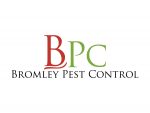Black, Red, Brown, Ghost, Pharoahs, Wood… There are a few types of ants in this country.
The most common are Black Ants.
Black ants (also known as Lasius niger) are, an extremely active insect commonly, found throughout the UK.
Why do ants come indoors?
Ants cause great nuisance as they travel widely in search of food following well, defined trails always clustering around the food source. Ants found indoors are usually worker ants, which are foraging for food to feed the queen and grubs
Ant structure
The worker ants are approximately 4mm long with the queen measuring up to 15mm. Ants have developed a system whereby individuals are responsible for specialised duties within the community. These are workers (sterile females), fertile males, and queens (fertile females). The worker ants build and extend the nest, look after the larvae (grubs) and search for food, whereby they become pests. The queens do none of these duties, but spend the majority of their time within the nest producing eggs.
Mating always takes place on the wing (when both ants are in flight). These spectacular swarms (nuptial flight) involve large numbers of ants, which seem to appear from nowhere, fortunately these swarms only last approximately 2-3 hours. After mating the males perish, the females shed their wings and dig cells in the soil where they over-winter. Eggs are laid during the late spring and the white larvae hatch 3-4 weeks later. When the larvae are fully-grown they pupate to form the well known “ant eggs”. From these pupae emerge the first brood of worker ants. The entire cycle can take up to two months to complete and under favourable conditions, a nest may persist for several years.
Control
Treatment of ants can prove difficult if you try it yourself. It is essential to locate the nesting site. This can be achieved by following their trails. Potential food sources must be protected from attack. Insecticide treatments can be applied in and around nesting sites using proprietary insect powders that can be obtained from DIY stores and gardens centres. The powders usually just keep the colony at bay rather than destroying the entire colony. The powder must be kept dry at all times. All doors, windows, drains, must be checked and any small cracks and crevices filled to minimise the points of entry.
Our Control
We use a gel insecticide laid in specific areas that the foragers take back to the nest and feed the Queen, killing her and the colony.


